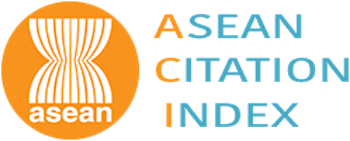คนพิการขาขาดไทย : กระบวนการตีตราและการปรับตัว
Keywords:
คนพิการขาขาด, กระบวนการตีตรา, lower-limb amputee, stigmaAbstract
Thai Lower Limb Amputees: Stigma Process and Adaptation
Yesuwarn T1, Uppayothin P2, Jivacate T3
1Faculty of Social Sciences Maefah Luang University,
2Institute of Social Research Maefah Luang University,
3Prostheses Foundation of H.R.H. the Princess Mother
Objectives: To explore the way of living, the impact of social stigma and social adaptive skills of the lower limb amputees both before and after the loss of their limbs.
Study design: Descriptive study.
Setting: Prostheses Foundation, and hospitals in Chiangrai, Nakornpathom, Srakaeo, Songkhla and Pattani province.
Subjects: 435 lower limb amputees who live in setting area.
Method: Interview and questionnaire.
Results: Study shows that 3 major causes of amputation are accident, land mines and underlying medical conditions. The amputees’ adaptive processes are: Step 1 - Change - whenever an able-bodied person loses a leg or legs then becomes an amputee. New identity as well as stigma is experienced by society at the same time as the physical impairment occurred. Social stigma which results of 1.name calling and teasing, 2.registration as a cripple in government documents and 3.society looks upon the amputee with pity; negatively impacts amputee’s reaction. Step 2 - Acceptance - The amputees must learn how to physically, psychologically and emotionally adapt one’s self to other family members and community, with family support, to get through grief reaction. Step 3 - Adaptation - when the amputees receive leg prosthesis, they can do activities as a normal person e.g., walking, returning to work, getting married, and they feel a new life as leg prosthesis leads them to new good things. Step 4 - New identity maintenance - social stigmata is reduced then disappeared as the amputees are no longer a handicapped and play a social role to maintain their mew identity.
Conclusion: This study shows the stigma processes and adaption after lower limb amputation. Researchers propose that social awareness of amputee’s adaptive process should be raised which leads to positive attitude on amputee and equality. Amputees are not a society’s burden, but they can do things as a normal person if they receive proper understanding and opportunity.
บทคัดย่อ
วัตถุประสงค์: เพื่อทราบถึงวิถีการดำเนินชีวิต ผลกระทบจาก กระบวนการตีตราและการปรับตัวเข้าสู่สังคมของคนพิการ ขาขาดก่อนและหลังจากพิการขาขาด
รูปแบบการวิจัย: การวิจัยเชิงพรรณนา
สถานที่ทำวิจัย: มูลนิธิขาเทียมฯ และ รพ.ในจังหวัดเชียงราย นครปฐม สระแก้ว สงขลา และปัตตานี
กลุ่มประชากร: กลุ่มตัวอย่างคนพิการขาขาดในสถานที่ทำ การวิจัย จำนวน 435 คน
วิธีการศึกษา: การสัมภาษณ์และการตอบแบบสอบถาม
ผลการศึกษา: พบว่าสาเหตุหลักของการตัดขาคือ อุบัติเหตุ เหยียบกับระเบิด และโรคประจำตัว กระบวนการและการปรับ ตัวของคนพิการขาขาดมี 4 ขั้นตอนคือ ขั้นที่ 1 จุดเปลี่ยนเป็น คนพิการขาขาด- คนปกติกลายเป็นคนพิการขาขาด สังคมให้ นิยามเอกลักษณ์ใหม่และตีตราว่าเป็นคนพิการขาขาดด้วยการ ตั้งชื่อให้ใหม่หรือเพิ่มสร้อยหลังชื่อเดิม การขึ้นทะเบียนกับทาง ราชการ และการมองอย่างสงสารจากสังคม ซึ่งส่งผลกระทบ ทางจิตใจอย่างรุนแรง และส่งผลให้มีปฏิกริริยาต่อความพิการ ขาขาดเชิงลบ ขั้นที่ 2 การยอมรับความพิการและการจัดการ กับเอกลักษณ์ที่เปลี่ยนไปโดยการใส่ขาเทียม- คนพิการขาขาด ต้องเรียนรู้และปรับตัวทั้งทางกายภาพ จิตใจและอารมณ์ให้ สามารถเข้ากับครอบครัวและสังคมด้วยวิธีการต่าง ๆ ซึ่งกำลังใจ ที่สำคัญคือครอบครัว ขั้นที่ 3 การปรับตัวเพื่อคงดำเนินชีวิตไม่ให้แตกต่างจากคนปกติ- คนพิการขาขาดผ่านช่วงปฏิเสธความ พิการและรับขาเทียมแล้วเสมือนมีชีวิตใหม่ สามารถเดิน ทำงาน สร้างรายได้ แต่งงาน เช่นเดียวกับคนปกติ ขาเทียมเป็นดั่ง อุปกรณ์นำให้คนพิการขาขาดได้พบกับชีวิตใหม่ ขั้นที่ 4 การ ดำรงอยู่ภายใต้เอกลักษณ์ใหม่- เมื่อคนพิการขาขาดปรับการ ดำเนินชีวิตดั่งคนปกติกระบวนการตีตราก็สิ้นสุดลง เพราะคน พิการขาขาดไม่แตกต่างจากคนปกติอีกต่อไป
สรุป: การวิจัยนี้แสดงให้เห็นถึงกระบวนการตีตราและการปรับ ตัวของคนพิการขาขาดตั้งแต่เริ่มขาขาด ถูกตีตราจนกระทั่ง สามารถดำรงอยู่ในเอกลักษณ์ใหม่และสิ้นสุดกระบวนการตีตรา สิ่งที่จะต้องดำเนินการต่อไปก็คือทำให้สังคมรับรู้องค์ความรู้นี้ เพื่อเปลี่ยนมุมมองยอมรับให้คนพิการขาขาดมีโอกาส มีศักดิ์ศรี และทำประโยชน์ให้สังคมและประเทศชาติเท่าเทียมกับคนปกติ





